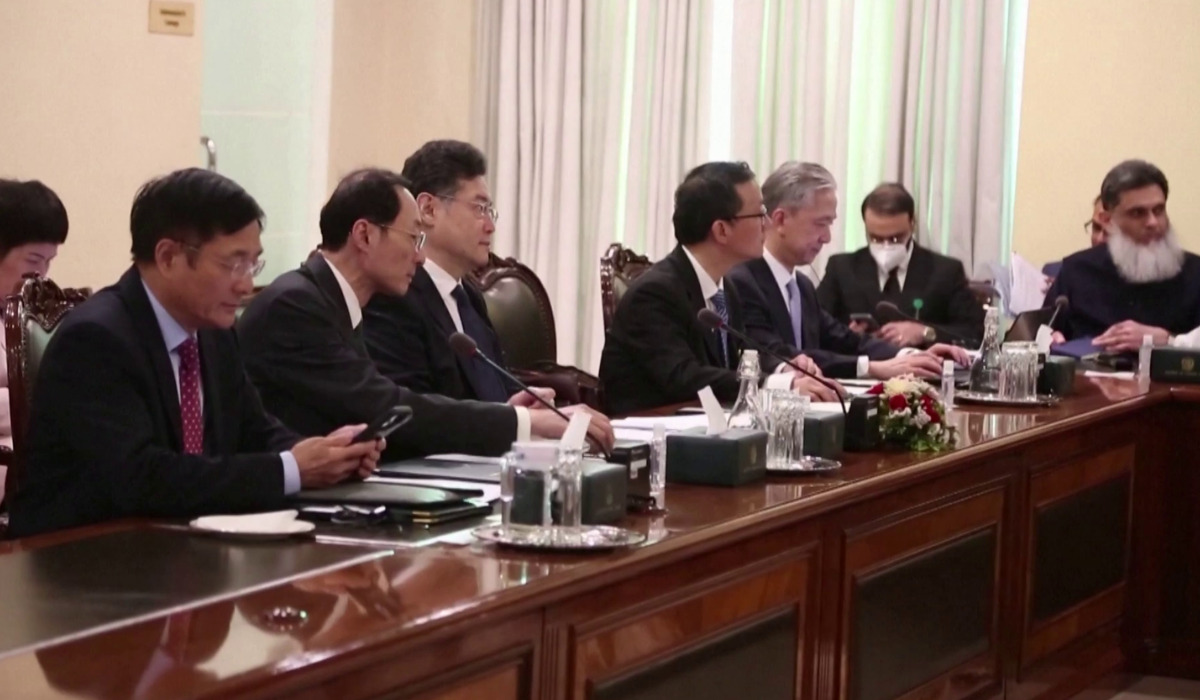The meeting of foreign ministers of China, Pakistan and the Taliban that was held behind closed doors this weekend, ended with a number of commitments by all three sides on achieving common interests, counterterrorism efforts and a mechanism for resumption of dialogue.
Two analysts said that in such meetings, Pakistan often tries to facilitate the ground for generating economic support for the Taliban.
“Foreign ministers of China and Pakistan who were representing countries in the world and in the region tried to pass on the message to the Taliban’s diplomat-in-charge that the patience of the world has reached its limit and that the Taliban should accept the world’s demands and cut its ties with terrorist groups,” said Wais Ahmad Nasiri, a political analyst.
Pakistani Foreign Minister Bilawal Bhutto Zardari chaired the meeting Saturday, with Chinese State Councilor and Foreign Minister Qin Gang and Taliban’s Amir Khan Muttaqi attending.
They also agreed to maintain good relations and friendship, enhance mutual political trust, respect each other’s sovereignty and territorial integrity, and oppose all attempts that undermine regional peace and stability.
Addressing an event at Pakistan Institute for Conflict and Security Studies, Muttaqi said “negative propaganda” is a big challenge for their government.
“It is the first time in the past 20 years that Afghanistan is generating $2.6 billion for its internal budget without foreign aid or international debt,” Muttaqi said.
Muttaqi also met with Pakistan’s Chief of Army Staff General Syed Asim Munir in Islamabad where the two discussed numerous issues including that relating to border management and regional security.
According to a statement issued Sunday by Pakistan’s Inter-Services Public Relations (ISPR), Munir and Muttaqi also discussed the formalization of bilateral security mechanisms for improvement in the current security environment. He held talks with religious scholars in Pakistan, including Fazal-ur-Rehman, who is known as the “spiritual father” of the Taliban.

“Pakistan has seen the implementation of its historic dream in the Taliban government. It means that it wants to play the role of a property dealer in Afghanistan and wants to hand over Afghanistan’s resources to the Chinese and in this, Pakistan gets the most benefit,” said Torek Farhadi, an analyst in political and international affairs based in the US.
Pakistan’s Ministry of Foreign Affairs in a statement said that Zardari held a candid and in-depth exchange with Muttaqi on Friday on key issues of mutual concern, including peace and security, as well as trade and connectivity. The ministry that the foreign ministers reaffirmed their desire to pursue continuous and practical engagement.
On peace and security, the foreign ministers emphasized the need for enhanced coordination to counter terrorism and deepening bilateral cooperation, the statement said.
It added that regarding bilateral and transit trade, the two sides stressed the importance of removing impediments to trade in order to advance the goal of enhanced regional economic integration and connectivity.
The statement added that Zardari also hosted a luncheon in honor of Muttaqi.
The trilateral meetings of Afghanistan-Pakistan-China foreign ministers was initiated in 2017 by China and has continued. Analysts said that decisions taken at past meetings have not been delivered so far.





